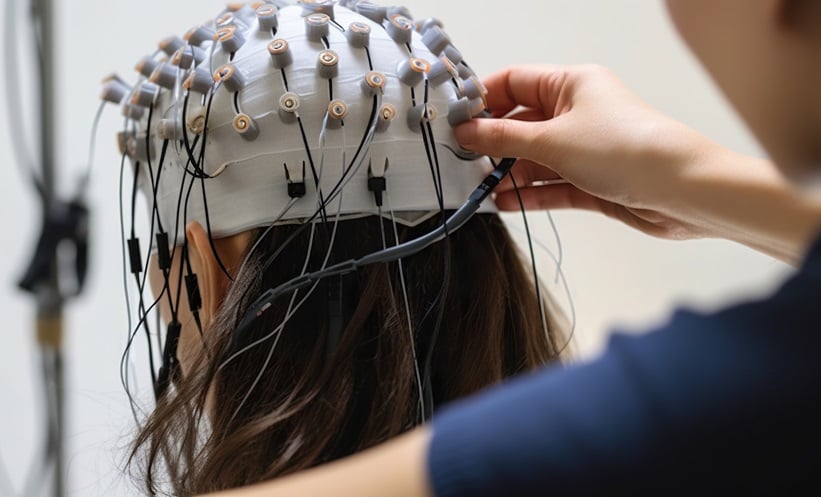A GROUNDBREAKING study has achieved nearly perfect accuracy in detecting Parkinson’s disease by analysing brain responses to emotional stimuli using electroencephalography (EEG) and artificial intelligence. This breakthrough offers a promising non-invasive and objective diagnostic method, potentially transforming early detection and treatment for Parkinson’s patients.
The study, conducted by researchers from the University of Canberra and Kuwait College of Science and Technology, focused on the differences in emotional perception between Parkinson’s patients and healthy individuals. Parkinson’s disease is known to impair emotion recognition, particularly in distinguishing emotions like fear, disgust, and surprise. To explore this, EEG data were collected from 20 Parkinson’s patients and 20 healthy controls as they viewed emotionally evocative video clips and images. Machine learning algorithms processed EEG data to extract and analyse key features, achieving a remarkable F1 score of 0.97 in distinguishing Parkinson’s patients from healthy individuals. Spectral power vectors, which correlate brain activity across different emotional states, and common spatial patterns, which enhance classification accuracy, were crucial to this success. The results showed Parkinson’s patients focused more on emotional intensity than valence, often confusing emotions of opposite valences, such as mistaking sadness for happiness.
This novel diagnostic approach offers several clinical advantages. Unlike current methods relying heavily on patient self-reports or subjective expert evaluations, EEG-based emotional analysis provides an objective and scalable solution. The nearly flawless accuracy demonstrated by the study suggests that this technique could enable earlier diagnosis, potentially leading to better disease management and improved quality of life for patients. Furthermore, emotional brain monitoring via EEG could be integrated into routine neurological assessments, making it a valuable tool for clinicians worldwide.
Future research should explore larger patient populations, refine classification algorithms, and assess the feasibility of implementing this technology in clinical settings. By combining neurotechnology, AI, and affective computing, this innovative method represents a significant step forward in personalised and precision medicine for Parkinson’s disease.
Katrina Thornber, EMJ
Reference
Parameshwara R et al. Exploring electroencephalography-based affective analysis and detection of parkinson’s disease. Intelligent Computing. 2024;17;3:0084.








